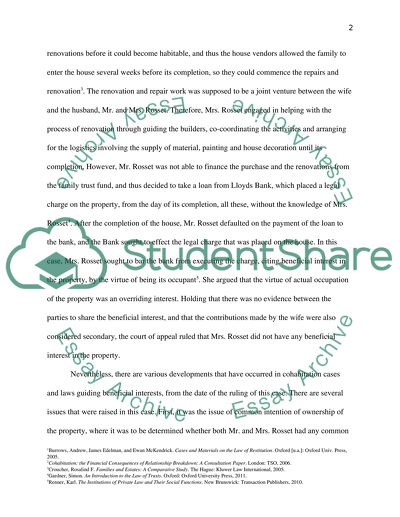Cite this document
(“If facts similar to those in Lloyds Bank v Rosset went to the SC Essay”, n.d.)
If facts similar to those in Lloyds Bank v Rosset went to the SC Essay. Retrieved from https://studentshare.org/law/1470847-if-facts-similar-to-those-in-lloyds-bank-v-rosset
If facts similar to those in Lloyds Bank v Rosset went to the SC Essay. Retrieved from https://studentshare.org/law/1470847-if-facts-similar-to-those-in-lloyds-bank-v-rosset
(If Facts Similar to Those in Lloyds Bank V Rosset Went to the SC Essay)
If Facts Similar to Those in Lloyds Bank V Rosset Went to the SC Essay. https://studentshare.org/law/1470847-if-facts-similar-to-those-in-lloyds-bank-v-rosset.
If Facts Similar to Those in Lloyds Bank V Rosset Went to the SC Essay. https://studentshare.org/law/1470847-if-facts-similar-to-those-in-lloyds-bank-v-rosset.
“If Facts Similar to Those in Lloyds Bank V Rosset Went to the SC Essay”, n.d. https://studentshare.org/law/1470847-if-facts-similar-to-those-in-lloyds-bank-v-rosset.


